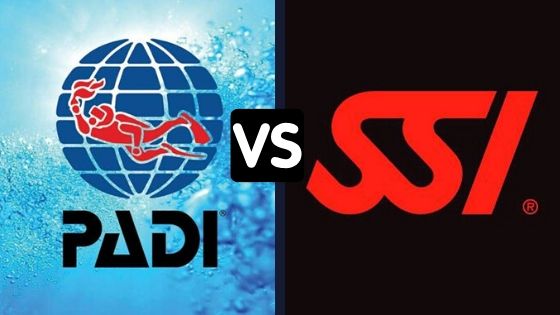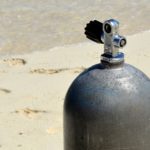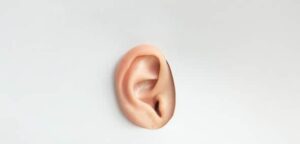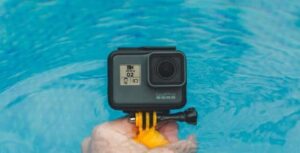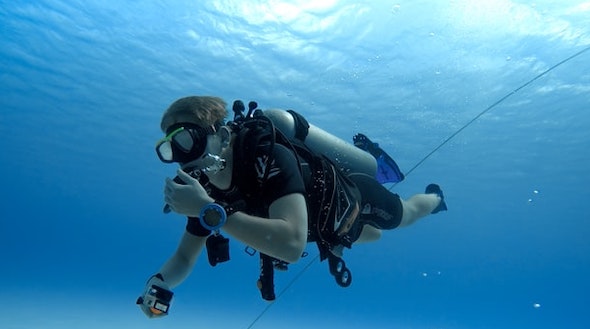
Buoyancy is an important part of scuba diving. It is an important skill to get your buoyancy right as this enables you to glide effortlessly through the water at any depth, without needing to use your hands and therefore using less air and energy. So how is buoyancy affected in saltwater vs freshwater?
Saltwater is denser than freshwater, this makes it harder for divers to achieve neutral buoyancy in freshwater. When diving in saltwater you need to increase your weights to account for the extra density of the saltwater.
In today’s post, we will go through in more detail buoyancy in saltwater vs freshwater while scuba diving, so let’s get started!
Read more on common questions asked by divers
What Is Buoyancy In Scuba Diving?
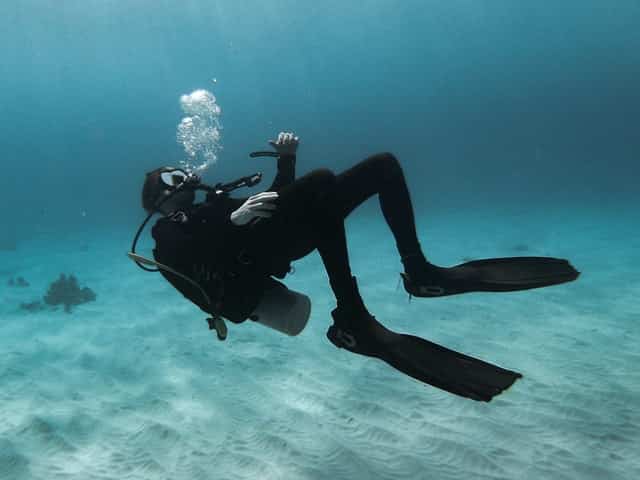
Buoyancy is an important skills to learn to become a good scuba diver. Simply, buoyancy is what determines whether the diver will float, ascend, or descend. The diver must control their rate of descent and ascent in the water and be able to maintain a constant depth.
By learning and fine-tuning the skill of buoyancy will improve your diving efficiency and make your diving fun and effortless.
There are three types of buoyancy which are as follows.
- Positive Buoyancy.
- Negative Buoyancy.
- Neutral Buoyancy.
You are aiming for neutral buoyancy is when the diver or object’s weight is equal to the fluid it displaces. So the scuba diver can glide effortlessly through the water.
What Is The Difference Between Diving In Freshwater Vs Saltwater?
One of the most critical differences between scuba diving in saltwater and freshwater is buoyancy control. In fact, when talking about diving, “buoyancy” refers to an object’s tendency to float or sink.
When scuba diving in freshwater, divers must be aware that they will probably have a much greater negative buoyancy than when diving in saltwater. Since saltwater has greater denser than freshwater, this will affect the diver’s ability to achieve neutral buoyancy.
Without careful control of buoyancy, a diver may find himself sinking much faster than anticipated or even unintentionally touching the bottom.
When diving in freshwater, compensating for negative buoyancy can be difficult because most people are not used to the density of freshwater as most people dive in saltwater.
To make things worse, negative buoyancy may increase throughout a dive as compressed air is used and tanks start to become lighter.this will affect the d
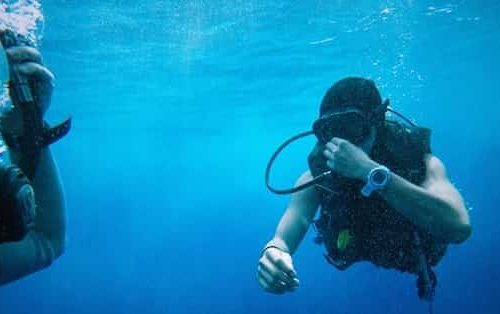
Is Saltwater Or Freshwater More Buoyant?
Water is the most buoyant substance on earth. Its density is 1 gram per cubic centimeter at 4 degrees Celsius, regardless of whether it is freshwater or saltwater.
The differences between a body of saltwater and a body of freshwater are caused by the number of salts dissolved in the water. The more salt there is in a given body of water, the denser it will be. This is because saltwater has a higher concentration of dissolved salts than freshwater does. As a result buoyancy for any saltwater diver is easier to control than for a freshwater diver.
Saltwater is more buoyant than freshwater, and the density of saltwater at 4 degrees Celsius is approximately 1.025 grams per cubic centimeter.
Most diving takes place in marine environments with high salinity and high water pressure (30 meters/100 feet or more). Saltwater is typically more buoyant than freshwater.
Can You Scuba Dive In Saltwater?
Yes, you can scuba dive in saltwater. Saltwater diving requires a wetsuit for insulation against the colder water, as well as a mask and snorkel to protect your eyes and be able to see.
Please note that saltwater is more buoyant than fresh water, so it is easy to float. Scuba diving in saltwater can be a lot of fun, but you need to be prepared to learn about buoyancy control in saltwater.
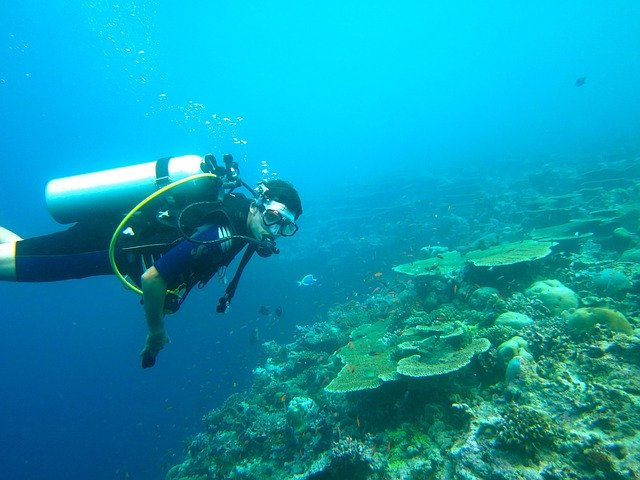
Do You Need More Weight in Saltwater?
Saltwater is more buoyant than fresh water, so divers need to utilize negative weighting in order to achieve neutral buoyancy. In fact, the difference between saltwater and freshwater has been stated as “negative seven pounds per cubic foot of seawater”.
This means that a diver who weighs 200 pounds will only weigh about 193 pounds underwater when diving in saltwater.
You need to take this difference in buoyancy into account when performing your pre-dive check. Equipment that was neutrally buoyant underwater may actually have a tendency to float once you enter the water.
If a diver needs weight, he or she has to wear additional lead weights around his or her waist, also known as “weight belts.”
If you are diving in coastal waters, use greater weights than if you were diving in open water due to surges and surf.
“Duck dive” by holding your weight belt underwater and then quickly bob to the surface and exhale before you get swamped by a wave.
Remember that your buoyancy compensator has an automatic inflate switch, so you must be careful not to rise too fast or the BC will inflate, and then you may not have any weights left.
Wrapping Up
Finally, saltwater is denser than freshwater, this makes it harder for divers to achieve neutral buoyancy in freshwater. When diving in saltwater you need to increase your weights to account for the extra density of the saltwater.
And that’s it for now! I’d love to know if this guide on buoyancy in saltwater vs freshwater while scuba diving has helped you. Let me know if you have any questions and let me know if there is more to add.
Did you enjoy this post? Then don’t forget to pin it!


